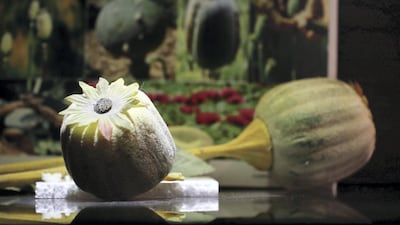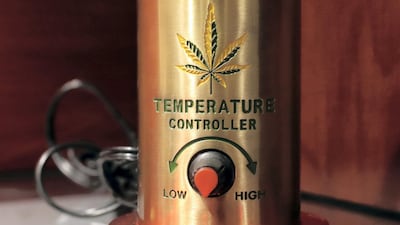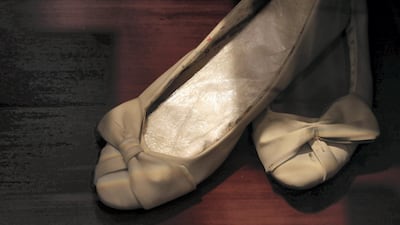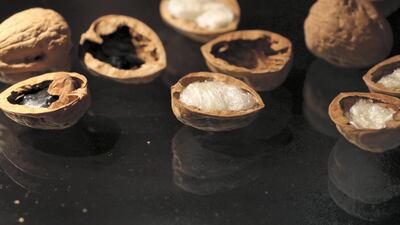Dubai airport authorities successfully caught more than 1,000 people attempting to smuggle illegal goods into the UAE last year, new figures show.
Customs officials said the tactics employed by criminals ranged from highly sophisticated efforts to conceal drugs to clearly less well thought-out techniques.
In one recent example, a smuggler hid 2.7kg of heroin in a wheelchair during the staging of the Special Olympic Games in the Emirates.
In another case, a man was caught with 25.5kg of marijuana in a suitcase, with only a few bags of foodstuffs barely concealing the easily identified narcotic.
On Sunday, in an exclusive interview with The National, authorities revealed the scope of new technologies being employed to fight the smugglers.
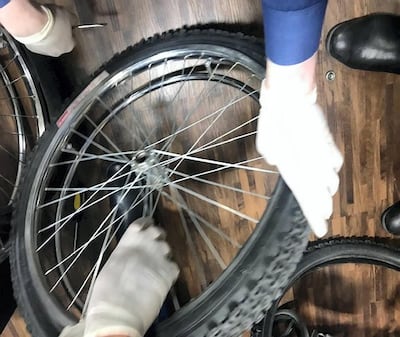
They also gave a behind-the-scenes tour of staff training programmes designed to help root out even the most well-hidden contraband.
“Smugglers are always finding new ways to hide drugs,” said Mohammad AlFalahi, senior manager of Dubai Customs’ investigation department.
“But what they don’t know is that no matter how many new ways they find we can still catch them.”
According to a report by Global Financial Integrity, a Washington DC think tank, the global market in drug trafficking in 2017 had an estimated annual value of between $426 billion and $652bn.
In 2015, a World Health Organisation report found roughly 450,000 people worldwide died as a result of drug use. Of those deaths, 167,750 were associated with overdoses.
A recent report by the United Nations Office on Drugs and Crime found global heroin seizures reached a record level of 73.7 metric tons in 2008.
Most of the heroin - 39 per cent - was seized in the Middle East and South-West Asia, while South-East Europe accounted for 24 per cent and Western and Central Europe 10 per cent.
In Dubai, customs’ inspectors are trained to recognise potential smugglers by studying their body language and assessing their travel itinerary.
In one incident last year, for example, a tourist only due to stay in the UAE for a short time, arrived with a huge bag of nuts weighing more than 7kg.
Given the fruit was also available in the Emirates, customs officers grew suspicious and searched the bag. It was found to contain 6,720 pills of Lyrica, a prescription painkiller which can be addictive.
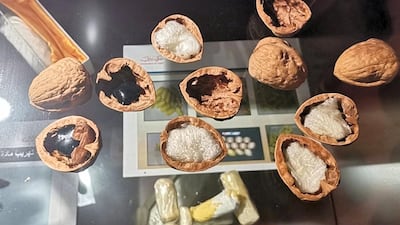
In a separate case, a disabled smuggler intentionally travelled to Dubai during the Special Olympics World Games Abu Dhabi held in March this year.
He planned to take advantage of the airport’s fast track customs scheme laid on for disabled visitors by concealing 2.7kg of heroin in his wheelchair’s tyres and handles.
“We had told our inspectors to be extremely polite and try their level best during the games to give [disabled visitors] flexible access,” Mr AlFalahi said.
“It was a big risk to inspect the wheelchair, because if it turned out to be clear it would’ve been embarrassing, and anyone could have complained that Dubai did this with a special needs person. We were very happy we caught the case.”
Mr AlFalahi went on to describe how officers relied heavily on CCTV to monitor passengers as they travelled through Dubai International Airport.
He described how some smugglers would wait for hours after picking up their luggage in an effort to find a suitable group of strangers to walk through customs with, hoping their number would help conceal them.
Last year, officials at the terminal caught a total of 1,270 people bringing in illegal goods, of which 508 cases - or 40 per cent - involved narcotics.
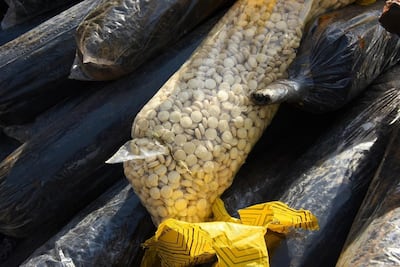
Other smuggled items included diamonds, weapons, living endangered animals as well as stuffed crocodiles and all manner of fake goods.
“The terminal is a huge area, so using cameras inspectors are able to pick out specific passengers who appear suspicious,” said Mr AlFalahi.
“You know if a passenger is clean from experience. [Officers] are dealing with more than 200 nationalities every day. They know if someone is hiding something.”
Aside from expert eyes, authorities in the UAE also rely on high-tech equipment to spot smugglers.
The Ionscan 500 DT, which has been used by the Federal Customs Authority for the last 18 months, is a highly sensitive instrument able to accurately detect a wide range of military, commercial and homemade explosives as well as common illegal drugs.
Similarly, the handheld Thermo FirstDefender is used by customs officers to quickly identify unknown solids or liquid chemicals.
With close to 90 million passengers travelling through Dubai International Airport each year, one of the biggest challenges security officials face is keeping disruption to a minimum.
Specialist training - such as leaning how drugs have been concealed in common objects in the past - allows officers to target smugglers more accurately.
Khalifa Bin Shahin, a senior inspector manager at Terminal 3, revealed how his team had recently found 12kg of the drug methamphetamine - or Crystal Meth - hidden in a microwave.
“The inspector suspected [the man] because first of all, he was travelling from a poor country that we usually export [microwaves] to, so why would he bring it with him?
“He was only staying for two weeks and the microwave also weighed more than 35kg.”




